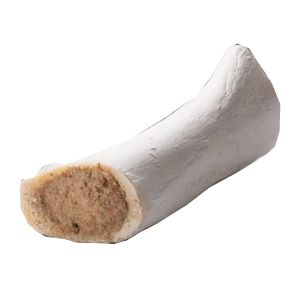In general, nuts are nutritious and quite healthy for humans. And as a pet owner, it’s natural to think about feeding your pet some nuts. But, can dogs eat nuts? The question makes sense considering the fact that nuts are responsible for some serious allergies in humans. So, does this affect the dogs too?
Well, we will try answering such questions, and share our views on whether you shall share this snack with your canine friend or not.
You Might Also Like:
Can Dogs Eat Nuts?
Offering nuts to dogs is not recommended. However, if you think to feed some, make sure they are in small quantities. Also, it’s crucial to know about possible allergies, toxicity or risk factors. No doubt, they retain high protein and fibre content, but, they also contain high fats and calories.
Further, not all nuts are toxic for dogs. You’ll need to sort out different varieties and keep the ones which are not toxic separate from the ones that possess a threat.
So, what nuts can dogs eat?
Nuts that dogs can eat

Here are different types of nuts that dogs can have:
1. Peanut
Peanut is safe and a good source of protein for dogs to eat. But, they can’t get salted, coated, candied or caramelized. Also, they cannot eat peanuts in shells. However, a few bare peanuts, roasted or not make a good treat.
Further, peanuts also contain arginine which is an amino acid that is useful in the production of nitric oxide. This helps with blood circulation. Also, it helps reduces the risk of heart disease or high blood pressure.
Furthermore, it’s important to keep the treat small as they contain high-fat contents and are allergic to some dogs.
2. Chestnuts
Roasted chestnuts will not harm your dog. They are a good source of Vitamins C, B1 and B2, iron, potassium, and copper. The presence of fibre can help manage your dog’s constipation. However, chestnuts also contain high amounts of fat and carbs which can cause stomach issues for the dog.
Hence, feeding chestnuts to your dog is fine, but, in small quantities. Also, make sure that the chestnuts you offer are not flavoured or seasoned.
3. Cashews
Cashews are not toxic and dogs can eat them. Although it’s possible that your dog is allergic to cashews. If your dog is allergic, you will observe symptoms such as swelling, hives itching.
Using Cashews as an occasional treat can come in handy for young energetic dogs. But, as they have high fats and proteins they may not be suitable for overweight and old age dogs.
Nuts Dogs Cannot Eat
There are many nuts which are either unhealthy or allergic to dogs. Here is a list of such nuts which you must avoid offering as a treat:
1. Almonds
Almond nuts are toxic for dogs. Unlike other unsalted nuts, you cannot offer your dog unsalted almonds. Unsalted almonds can cause stomach issues and if the dog is more sensitive it may escalate into gastric intestinal distress.
Further, the hard shell of almonds makes it difficult for dogs to chew and swallow, hence, a choking hazard.
2. Hazelnuts
Hypothetically, dogs can eat hazelnuts. They are not even that toxic. However, just like almonds, they can cause choking problems or even intestinal obstruction. Young dogs choke as they try to chew, whereas, older dogs swallow them and it gets stuck in their intestine.
3. Walnuts
Dogs shall not get walnuts as treat. Apart from causing stomach irritation they also lead to intestinal obstruction. Walnuts have a high chance of mould contamination. Such walnuts can have fungi producing tremorgenic mycotoxins, and if dogs come in their contact, chances are they will suffer seizures and in some cases fatal neurological complications.
4. Pistachios
These nuts are probably human favourites, but if fed to dogs, pistachios can cause trouble. They may carry aspergillus mould. This mould produces aflatoxin and can cause some serious issues to your dog’s liver.
Further, pistachios are also a choking hazard and can block the intestine, especially if the pistachios are not shelled. The high proportion of fats in these nuts can cause pancreatitis issues. The dog may also gain weight as pistachios are high in calories.
Hence, it’s best for your canine friend to pistachios. If the dog does eat them, it’s crucial to look out for signs of gastrointestinal issues.
5. Brazil Nuts
These nuts have higher fat content but in comparison to the others, are less toxic. So, can dogs eat brazil nuts?
Brazil Nuts may not be as toxic as other nuts, so it’s better not to offer them to your dog. Giving these nuts will cause digestive issues and upset your dogs’ stomachs. In addition, if your dog does eat more of these nuts then it can cause pancreatitis.
When seeking for nutritious dog treats, you may also wonder “can dogs have mussels?” Before feeding mussels, as with any new food, consult with your veterinarian.
Your Dog ate Nuts – Now what?

At times, even if you are careful, your dog may have had some nuts they found in your absence. Regardless, the question is what will you do if your dog eats nuts? Below are some prospects to consider following such situations:
- Monitor the dog’s condition. Look for symptoms suggesting a toxic reaction within 12 hrs of the dog eating nuts.
- The dog will likely show neurological symptoms such as seizures, muscle tremors, and weakness, in the majority of cases, this will happen when dogs intake old nuts or toxic nuts such as walnuts or macadamia nuts.
- If your dog is constantly vomiting and has diarrhoea which is unresolved, then it’s probably a pancreatitis problem. In such scenarios, if the dog requires immediate medical attention, call a local helpline or visit the nearest Vet.
- If your dog is choking, you have to take them to the nearest Vet.
Any of the above-mentioned, symptoms are alarming. You must consult a vet. Give them a complete disclosure of what your dog may have eaten as this will help the vet provide the best treatment to tackle any severe symptoms.
Hence, as long as they don’t have pancreatitis or choking due to the ingestion of nuts, they recover within 12-48 hrs without any medical attention.
You are probably wondering what precautions one can take to avoid such a situation. Let’s have a peek at some methods which will you prevent the dog from eating nuts.
When looking for nutritious treats for your dog, it’s better to choose options like mackerel for dogs rather than foods like almonds or walnuts.
Preventing Dog From Eating Nuts
You can follow the below-mentioned ways to stop your dog from having nuts:
- Keep the nuts far away from the dogs, in inaccessible areas of the house. For instance, a topmost shelf of a storage or in a locked cabinet in the kitchen.
- Make sure the treats or commercial food packs you offer to the dog don’t contain nuts.
- If your dog has eaten nuts and likes them, serve them safe treats containing fruits, vegetables or a vet-approved treat. Doing this regularly will shift their focus from nuts completely.
When you follow these ways, it’s possible your dog will go nuts for not having nuts. But, saying no to nuts will keep them healthy.
FAQs
Are dogs allergic to nuts?
Not all dogs are allergic to nuts and not all nuts are allergic to dogs. But, if the dog is showing symptoms such as – red and itchy skin, hotspots, bald patches, difficulty breathing, diarrhoea, or vomiting then it is allergic to the nuts.
Are nuts poisonous to dogs?
Nuts for dogs are not poisonous, but many of them are toxic, causing health issues for our canine friends. You have to keep an eye out for such toxic nuts. Almonds, Walnuts, Macadamia nuts, and pistachios are some prominent examples.
How many cashew nuts can a dog eat?
Cashew nuts for dogs are not toxic and dogs can eat them. However, you should not feed them in excessive quantities as it can cause problems like vomiting and diarrhoea.
Concluding Remarks
We hope you have some clarity on the query- Can dogs eat nuts? after reading this article. From a health perspective, it’s good if you don’t offer nuts to your dogs, but you can offer them if you wish. In our view, it’s best to put the nuts into the list of the items you don’t offer your canine friend.
Thinking about feeding black pudding to dog. Many dogs owners wonder is black pudding good for dogs? Consider asking your vet before feeding them.
References:
- Poisonous food for dogs | Health | The Kennel Club. (n.d.). THE KENNEL CLUB. Retrieved February 14, 2024, from https://www.thekennelclub.org.uk/health-and-dog-care/health/health-and-care/a-z-of-health-and-care-issues/poisonous-food/
- People Foods to Avoid Feeding Your Pets. (n.d.). ASPCA. Retrieved February 14, 2024, from https://www.aspca.org/pet-care/animal-poison-control/people-foods-avoid-feeding-your-pets
- Department of Jobs, Precincts and Regions. (2023, February 3). Toxic plants for dogs. Agriculture Victoria. Retrieved February 14, 2024, from https://agriculture.vic.gov.au/livestock-and-animals/animal-welfare-victoria/dogs/health/toxic-plants-for-dogs






